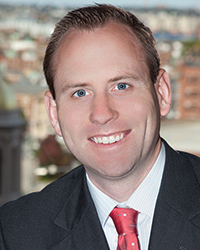Massachusetts’ highest court defines scope of religious exemption for property tax - by Ryan McManus

Hemenway & Barnes, LLP
In a significant decision, the Massachusetts Supreme Judicial Court (SJC) recently held that, for the purposes of determining property tax, a house of religious worship is more than just a chapel used for religious services. The court held that the accessory portions of the property, including a welcome center containing a cafeteria, a gift shop, and a bistro, and a maintenance building were all exempt because they were used for purposes connected with or in support of religious worship. The case, Shrine of Our Lady of LaSalette Inc. v. Board of Assessors of Attleboro, provides clear guidance for religious property tax exemption in Massachusetts.
The LaSalette Shrine in Attleboro, Mass., has for many years been a popular destination for religious worship. The Shrine hosts pilgrimages throughout the year and hundreds of thousands of visitors during its annual Festival of Lights Christmas celebration. The Shrine also uses parts of its property for fundraising activities, and occasionally allows outside groups to use portions of the property.
After 60 years of being deemed largely exempt from any property taxes, in fiscal year 2013 the city’s assessors determined that the Shrine owed property taxes of $92,292.98. The assessors contended that the welcome center and surrounding land were only partially exempt, and that the maintenance building was fully taxable. The assessors also determined that a building leased as a safe house for battered women and a wildlife sanctuary on the property, which was managed by the Massachusetts Audubon Society under a conservation easement, were fully taxable. The Massachusetts Appellate Tax Board affirmed the assessor’s determination, but the SJC largely disagreed.
The SJC held that the test for determining whether property is exempt as a house of worship is, “as to each portion of church property, whether its dominant purpose is religious worship or instruction or connected with religious worship or instruction.” Applying that test to the LaSalette Shrine, the court held that the Shrine’s welcome center and maintenance building were both exempt in their entirety. The court concluded that all of the uses in the welcome center (including the cafeteria, gift shop, and bistro) were sufficiently “connected with” religious worship at the Shrine,” as was use of the maintenance building to store supplies and equipment.
The SJC further held that the safe house and the sanctuary land were not exempt from taxation, at least under the religious exemption, because each of those portions of the property was under the exclusive control of another organization. The court recognized, however, that those portions of the property could potentially be exempt as charitable uses if the Shrine were to seek a charitable exemption for future tax years.
The SJC’s decision clarifies the scope of the religious exemption under Massachusetts law, and several aspects of the decision could bear relevance to the interpretation of similar tax exemptions in other states as well. First, the SJC explicitly recognized the use of religious property for fundraising purposes does not jeopardize its exemption. As the SJC aptly put it, “even a church cannot live on prayer alone.” Second, the SJC rejected the Assessors’ attempt to tax a percentage of the property based on the percentage of use that the assessor found nonreligious.
Instead, the SJC held that portions of a house of worship are either exempt or not exempt based on their “dominant” purpose. Third, the SJC declined to adopt more stringent tests applied in other states that exempt only uses that are “essential” to religious worship. The SJC instead held that use for “purposes connected with religious worship” or “purpose that normally accompany and supplement the religious work of a parish” are all exempt from taxation.
Ryan McManus, Esq., is a partner at Hemenway & Barnes, LLP, Boston, Mass.
Preservation of Affordable Housing secures $23.5 million in financing from Rockland Trust and Citizens Bank

Conn. hospitality market: A technical appraisal perspective on market dynamics and valuation challenges (2019-2025)










